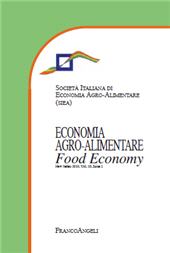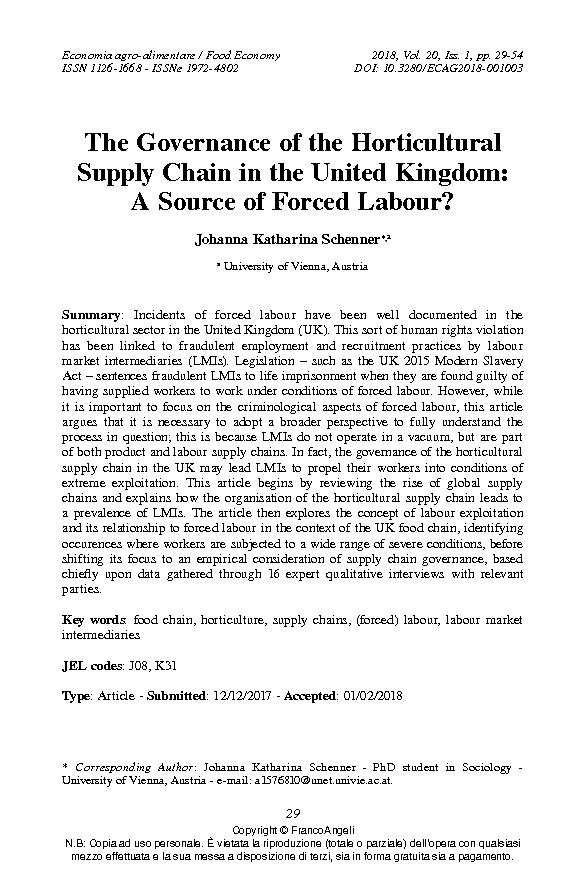The Governance of the Horticultural Supply Chain in the United Kingdom : a Source of Forced Labour?
29-54 p.
Incidents of forced labour have been well documented in the horticultural sector in the United Kingdom (UK). This sort of human rights violation has been linked to fraudulent employment and recruitment practices by labour market intermediaries (LMIs). Legislation - such as the UK 2015 Modern Slavery Act - sentences fraudulent LMIs to life imprisonment when they are found guilty of having supplied workers to work under conditions of forced labour. However, while it is important to focus on the criminological aspects of forced labour, this article argues that it is necessary to adopt a broader perspective to fully understand the process in question; this is because LMIs do not operate in a vacuum, but are part of both product and labour supply chains. In fact, the governance of the horticultural supply chain in the UK may lead LMIs to propel their workers into conditions of extreme exploitation.
This article begins by reviewing the rise of global supply chains and explains how the organisation of the horticultural supply chain leads to a prevalence of LMIs. The article then explores the concept of labour exploitation and its relationship to forced labour in the context of the UK food chain, identifying occurences where workers are subjected to a wide range of severe conditions, before shifting its focus to an empirical consideration of supply chain governance, based chiefly upon data gathered through 16 expert qualitative interviews with relevant parties. [Publishers' text].
Is part of
Economia agro-alimentare : XX, 1, 2018-
Articles from the same issue (available individually)
-
Information
ISSN: 1972-4802
DISCIPLINES
KEYWORDS
- Food chain, horticulture, supply chains, (forced) labour, labour market intermediaries



